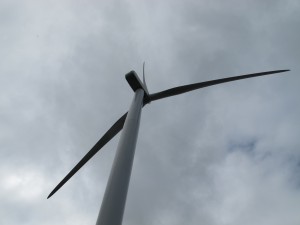Commonwealth Foundation Responds To StateImpact’s AEPS Report
-
Scott Detrow
The Commonwealth Foundation, which advocates for smaller government here in Pennsylvania,writes this response to our report on the state’s Alternative Energy Portfolio Standards Act.
Our story framed the AEPS as a success, in that it has accomplished its goal of growing Pennsylvania’s green energy industry to a point where it employs nearly 200,000 people.
The Commonwealth Foundation’s Katrina Currie suggests a different metric:
Whether you’d call the state’s AEPS a success depends on how success is defined. CF wouldn’t define creating higher energy costs for consumers by mandating the use of highly subsidized and unsustainable energy sources successful.
The AEPS report found solar energy is more than 10 times more expensive than electricity from natural gas and nearly six times more expensive than coal. Electricity from onshore wind is nearly three times more expensive than natural gas. That is, these mandates increase the price of electricity for residents and businesses.
The added costs will only grow in the future, as AEPS mandate solar electricity use increase nearly 25 times the current level, while Tier I energy use must triple, by 2021.
States with renewable standards, like Pennsylvania, have electricity rates that are nearly 40 percent higher than states with no mandate. While state electricity costs are affected by other factors, alternative energy mandates necessitate higher energy prices. Right now, residents of Pennsylvania pay more for their electricity than the national average and residents in 36 other states.
We believe that electricity consumers already have a range of choices without the state forcing all consumers to pay more: in the PPL territory alone there are nearly 30 renewable electricity plans available, ranging from 5 percent of electricity from local wind power to 100 percent renewable energy.
On top of carving out special energy mandates for themselves, many “green” energy sources are only in production because of government grants and loans used to subsidize them. Solar energy producers get 55 times more subsidies per megawatt hour than coal, and nearly 15 times more than nuclear power, according to the federal Energy Information Administration.
Instead of government intervention, we need innovation in the electricity market, which cannot co-exist with the government picking winners and losers at the expense of affordable energy.
What do you think of Pennsylvania’s alternative energy policies? Send your thoughts to sdetrow@stateimpact.org and we’ll post them on the site.

















